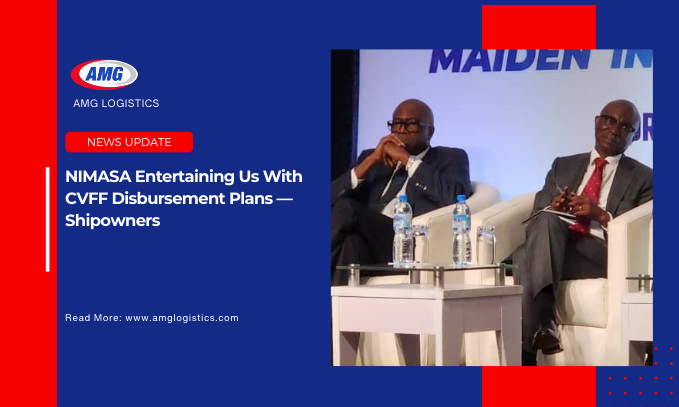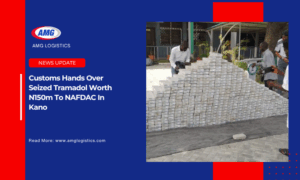Shipowners have again expressed frustration and skepticism over the Nigerian Maritime Administration and Safety Agency’s (NIMASA) recent call for expressions of interest from financial institutions to act as Primary Lending Institutions (PLIs) for the long-awaited disbursement of the Cabotage Vessel Financing Fund (CVFF). They described the agency’s approach as a repetitive cycle of unfulfilled promises and propaganda.
Recall that in a public notice, NIMASA invited Deposit Money Banks (DMBs) and Development Financial Institutions (DFIs), both local and foreign, to apply for accreditation as PLIs for the CVFF. The advert, titled “Implementation and Disbursement of the Cabotage Vessel Financing Fund (CVFF): Expression of Interest as a Primary Lending Institution,” reignited conversations on the decades-old fund, meant to support indigenous shipping operators in acquiring vessels for cabotage trade.
However, shipowners have accused NIMASA of failing to move beyond bureaucratic formalities, with little action to show for over two decades of promises.
Some have also asked for clarifications about the rumours that a part of the CVFF has been used to procure equipment under the Deep blue assets.
Some even allege that NIMASA is using certain provisions of the Suppression of Piracy and Maritime Offences (SPOMO) Act, 2019 to dip its hands into the CVFF.
In a chat with our correspondent, Otunba Sola Olatunji, a shipowner, described the CVFF saga as “entertainment” rather than meaningful progress. According to him, “for over 20 years, we’ve heard the same rhetoric. They organize seminars, make sweet speeches, and promise disbursement, but nothing happens. This is a motion without movement.”
Olatunji expressed doubts about the sincerity of NIMASA’s efforts, suggesting that the repeated delays are a result of political propaganda, rather than genuine commitment to improving the maritime sector. “If the government cannot intervene in shipping, we will continue to look up to God. It’s pathetic that this sector, with so much potential has been neglected for over two decades,” he lamented.
He highlighted the lack of support for indigenous shipowners and questioned government’s priorities. “In other countries, shipping is a major economic catalyst. Here, it’s been ignored. Meanwhile, aviation and other sectors have received substantial intervention. What about us?”
On his part the President of the Ship Owners Association of Nigeria (SOAN), Sonny Eja, echoed Olatunji’s sentiments, describing NIMASA’s latest move as another round of unproductive discussions. “It’s almost like a broken record,” he said.
Eja called for the replication of successful funding models, citing the Nigerian Content Development and Monitoring Board (NCDMB) as an example. “The NCDMB has managed the Nigerian Content Intervention Fund effectively. NIMASA should borrow that blueprint and establish a clear framework for disbursing the CVFF,” he suggested.
Addressing insinuations that CVFF could have been diverted to secure Nigeria’s waterways under the Suppression of Piracy and Other Maritime Offences (SPOMO) Act, Eja was unequivocal in his disapproval.
“The CVFF is for shipowners to acquire vessels or refinance loans. Diverting it for security purposes would be a disservice to the industry. Securing our waterways is the government’s responsibility, and significant progress has already been made in that area,” he argued.
Shipowners also questioned whether new agreements would need to be signed with the latest call for expressions of interest, wondering what had happened to previous agreements and why there was no continuity.
“Twenty-one years is enough time to have trained multiple generations of seafarers and build fleet that would drive economic growth,” Olatunji added. “Instead, we are stuck with promises and no action. It’s clear the government has no political will to implement the CVFF.”
Stakeholders have called for the appointment of maritime professionals with practical industry experience to lead the charge. “Only someone from within the industry can bring about the needed change,” Olatunji said.
Eja urged NIMASA to prioritize the needs of genuine shipowners and ensure transparency in the process. “The funds must be used for their intended purpose—acquiring ships and growing the industry. Anything else is unacceptable,” he emphasized.





